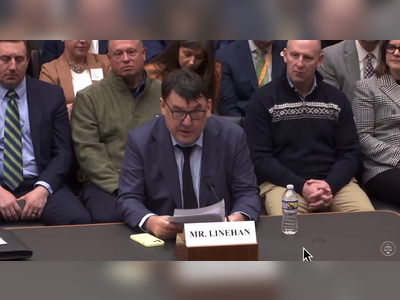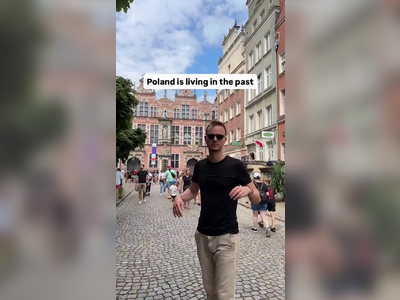Pegasus Case: Hungarian Civil Liberties Union Wins Lawsuit Against the Constitutional Protection Office
In a first-instance ruling, the Hungarian Civil Liberties Union (HCLU), also known as TASZ, has won a lawsuit against the Constitutional Protection Office (AH), a spy agency overseen by Antal Rogán, in the case of Adrien Beauduin, a Belgian student activist and former student at Central European University (CEU), whose phone was found to have traces of the Pegasus spyware.
After two years of litigation, the Budapest Metropolitan Court has ruled that the AH must declare whether it processes data on Beauduin. The judgment is pioneering as it states that intelligence agencies cannot automatically refuse to disclose whether an individual has been under surveillance. The decision requires the agencies to justify in court even through confidential documents why there is more interest in secrecy than in providing information in the specific case of the individual concerned, the civil rights organization informed in a statement also sent to our newsroom.
HCLU believes the procedure also highlights how easily secret services can be used to intimidate citizens. After a disproportionately long and expensive litigation process, the affected individuals can only find out whether any spy agency handles data about them. It takes a separate, lengthy process to discover what these data are, and these procedures are usually unsuccessful. The civil rights group suggests that a solution to the problem could be to establish an authority that is not only free for everyone to access but also willing to check for unlawful surveillance and release any unlawfully collected data to the individual concerned.
As they recall, Beauduin's phone was attacked with the Israeli Pegasus spyware following his detention at a protest near the, at that time, Budapest-based CEU. The criminal proceedings were later discontinued, but it seems that Beauduin was not monitored because of this, as the intelligence gathering should have been revealed during the proceedings. Beauduin only learned he was a target after the leak of phone numbers compromised by Pegasus, they indicate.
HCLU has a total of seven clients related to the Pegasus scandal. What they have in common is that each of their phone numbers became a target, and in several cases, the actual hacking was verified. Besides the student activist, the human rights organization provides legal representation to journalists Brigitta Csikász, Dávid Dercsényi, Dániel Németh, Szabolcs Panyi, and attorney Ilona Patócs in the matter.
However, the organization also drew attention to the fact that their experiences in enforcing the law in the Pegasus case have been devastating so far. The Fidesz majority of the National Security Committee of the Hungarian National Assembly has thwarted any substantive investigation. The Commissioner for Fundamental Rights did not initiate an investigation, allegedly without merit, claiming that this was exclusively the jurisdiction of the National Authority for Data Protection and Freedom of Information (NAIH). The NAIH, in its investigations, found everything in order, of course, only because they examined whether everything complied with the letter of the law on national security. The primary problem, as stated by the European Court of Human Rights, is that the law itself is a fundamental rights violation, as it allows any surveillance without substantive limits. Another difficulty is that the legal regulation of surveillance is often unclear, and since similar lawsuits were rarely initiated in the past, the courts could not rely on previous practices – the human rights defenders wrote, adding that from this latter point of view, the current judgment represents progress.
HCLU believes the procedure also highlights how easily secret services can be used to intimidate citizens. After a disproportionately long and expensive litigation process, the affected individuals can only find out whether any spy agency handles data about them. It takes a separate, lengthy process to discover what these data are, and these procedures are usually unsuccessful. The civil rights group suggests that a solution to the problem could be to establish an authority that is not only free for everyone to access but also willing to check for unlawful surveillance and release any unlawfully collected data to the individual concerned.
As they recall, Beauduin's phone was attacked with the Israeli Pegasus spyware following his detention at a protest near the, at that time, Budapest-based CEU. The criminal proceedings were later discontinued, but it seems that Beauduin was not monitored because of this, as the intelligence gathering should have been revealed during the proceedings. Beauduin only learned he was a target after the leak of phone numbers compromised by Pegasus, they indicate.
HCLU has a total of seven clients related to the Pegasus scandal. What they have in common is that each of their phone numbers became a target, and in several cases, the actual hacking was verified. Besides the student activist, the human rights organization provides legal representation to journalists Brigitta Csikász, Dávid Dercsényi, Dániel Németh, Szabolcs Panyi, and attorney Ilona Patócs in the matter.
However, the organization also drew attention to the fact that their experiences in enforcing the law in the Pegasus case have been devastating so far. The Fidesz majority of the National Security Committee of the Hungarian National Assembly has thwarted any substantive investigation. The Commissioner for Fundamental Rights did not initiate an investigation, allegedly without merit, claiming that this was exclusively the jurisdiction of the National Authority for Data Protection and Freedom of Information (NAIH). The NAIH, in its investigations, found everything in order, of course, only because they examined whether everything complied with the letter of the law on national security. The primary problem, as stated by the European Court of Human Rights, is that the law itself is a fundamental rights violation, as it allows any surveillance without substantive limits. Another difficulty is that the legal regulation of surveillance is often unclear, and since similar lawsuits were rarely initiated in the past, the courts could not rely on previous practices – the human rights defenders wrote, adding that from this latter point of view, the current judgment represents progress.
AI Disclaimer: An advanced artificial intelligence (AI) system generated the content of this page on its own. This innovative technology conducts extensive research from a variety of reliable sources, performs rigorous fact-checking and verification, cleans up and balances biased or manipulated content, and presents a minimal factual summary that is just enough yet essential for you to function as an informed and educated citizen. Please keep in mind, however, that this system is an evolving technology, and as a result, the article may contain accidental inaccuracies or errors. We urge you to help us improve our site by reporting any inaccuracies you find using the "Contact Us" link at the bottom of this page. Your helpful feedback helps us improve our system and deliver more precise content. When you find an article of interest here, please look for the full and extensive coverage of this topic in traditional news sources, as they are written by professional journalists that we try to support, not replace. We appreciate your understanding and assistance.
















